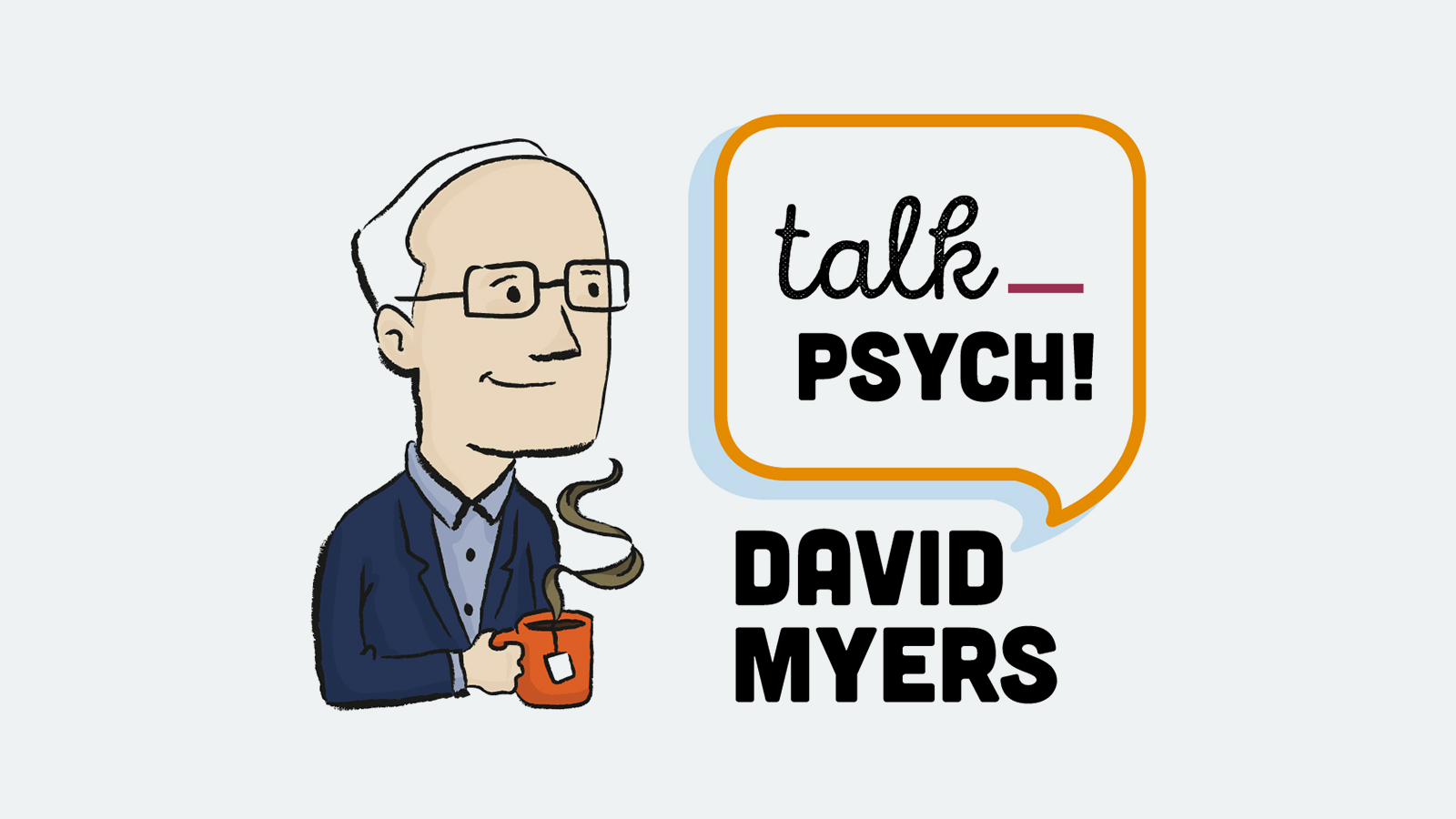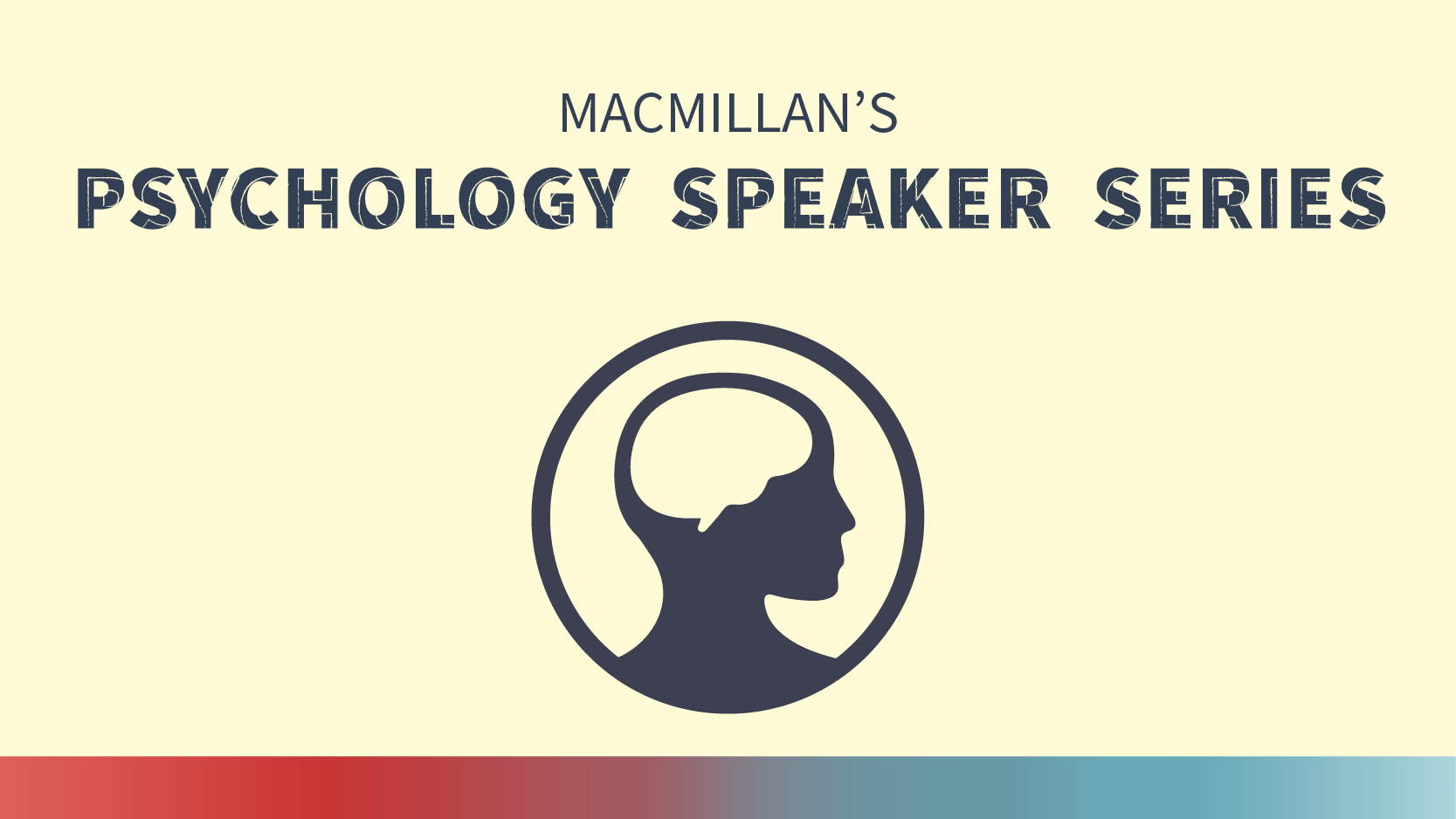-
About
Our Story
back- Our Mission
- Our Leadershio
- Accessibility
- Careers
- Diversity, Equity, Inclusion
- Learning Science
- Sustainability
Our Solutions
back
-
Community
Community
back- Newsroom
- Discussions
- Webinars on Demand
- Digital Community
- The Institute at Macmillan Learning
- English Community
- Psychology Community
- History Community
- Communication Community
- College Success Community
- Economics Community
- Institutional Solutions Community
- Nutrition Community
- Lab Solutions Community
- STEM Community
- Newsroom
- Macmillan Community
- :
- Psychology Community
- :
- Psychology Blog
- :
- Psychology Blog - Page 4
Psychology Blog - Page 4
Options
- Mark all as New
- Mark all as Read
- Float this item to the top
- Subscribe
- Bookmark
- Subscribe to RSS Feed
Psychology Blog - Page 4
Showing articles with label Teaching and Learning Best Practices.
Show all articles
Community Manager
11-03-2020
08:07 AM
Debra Roberts (Howard University), lead supplements author of My Psychology, draws on her years of teaching and research to share strategies for talking about diversity in psychology classes.
WATCH THE RECORDING
... View more
Labels
-
Teaching and Learning Best Practices
-
Virtual Learning
0
0
3,254
Community Manager
11-03-2020
08:05 AM
Looking for simple solutions? Professor Scott Cohn (Western Colorado University) will demonstrate tips and techniques for creating a positive online assessment experience for students. Resource options will be compared with specific examples from his Introductory Psychology course.
WATCH RECORDING
... View more
Labels
-
Teaching and Learning Best Practices
-
Virtual Learning
0
0
2,034
Community Manager
11-03-2020
08:04 AM
Join Ronald J. Comer (Princeton University) and Jonathan S. Comer (Florida International University), the renowned best-selling authors of Abnormal Psychology and Fundamentals of Abnormal Psychology, as they review the rapidly growing body of research on how the COVID-19 pandemic is impacting the state of mental health and its treatment.
WATCH RECORDING
... View more
Labels
-
Teaching and Learning Best Practices
-
Virtual Learning
0
0
8,686
Expert
10-20-2020
09:21 AM
The perennial question for any introductory course is about what to cover. Is it better to teach more stuff superficially? Or is it better teach less stuff deeply? This is the classic breadth vs. depth dilemma. I don’t think anyone goes all-in on breadth, teaching Intro Psych by covering one isolated concept after another, jamming in every known psychological concept. If that’s you, may I suggest using the APA Dictionary of Psychology as your open source textbook? Nor do I think that anyone goes all-in on depth, teaching Intro Psych by covering one concept in great detail. That’s what a graduate school dissertation is for. Instead, we’re all somewhere in between these two extremes. How far left from center and how far right from center is the question. This question would be easier to answer if we knew where the center was. When I teach Intro Psych, what I choose to cover and choose not to cover are driven by two primary factors. The first is the textbook I’m using. The authors—with much input from reviewers and editor(s)—have curated the psychological knowledge that they think is important for an educated citizenry to know. That one’s easy. I have a book that tells me what they thought was important. The second factor is my own opinion of what an educated citizenry needs to know. This one is a little harder, but not much. If knowing a piece of psychological knowledge will increase the chances of saving someone’s life, it’s more likely to make my cut. I spend more time and effort covering sleep and attention than I used to. My coverage of psychological disorders focuses much more on stigma these days than it does on, say, symptoms. (Shout out to Susan Nolan for helping me think about this.) I’ve changed my approach to psychotherapy so that students can explore how to find a psychotherapist and the questions to ask a potential psychotherapist. When Intro Psych instructors get together, these are the kinds of issues we talk about. How much of your coverage of the personality chapter is historical? Or, more to the point, do you cover Freud? Do you lecture on the sodium-potassium pump? Do you ask students to know what each neurotransmitter does? How much I/O content do you cover? Do you cover motivation and emotion? But here’s what we don’t talk about. At the Intro course level—and this is true for any discipline—we deliver the simplified version. We zoom out to the 30,000-foot view where we can’t see the nuance. In Intro to History (of some appropriate time period) we learn that the cause of WWI was the assassination of Archduke Ferdinand. We learn in Intro to Anatomy that there are two arteries in the human arm, the radial and the ulnar. We learn in Intro to Art that Picasso was a cubist. All of that is true. Sort of. Much had to come before in order for Ferdinand’s assassination to trigger a world war. Some people have three arteries in their arms. And Picasso, in his early years, was not a cubist; that came later. In Intro Psych we have our own typically-covered content that is true in a sort of kind of way. The brain, for example, is much more complex than could ever be presented in Intro Psych. Yes, the temporal lobes play an important role in hearing—but the temporal lobes do so much more beyond that. Yes, the occipital lobes play an important role in vision—but lots of other places in the brain are important for vision, too. But we keep it simple. Temporal=hearing; occipital=vision. Yes, perceptions of three dimensions comes from binocular vision, but not everyone with two good eyes perceives the world in three dimensions. Decision-making and memory involve much more than what we present in the Intro course. Psychological disorders are much more complex than could be covered in Intro. If students are lucky enough to take another psychology course (keeping in mind that the vast majority of students in Intro Psych are not psychology majors), the instructor of that next course will say something like, “In Intro Psych, you may have learned X. In this course, you’ll learn that that’s not the whole story. Let me tell you about Y.” And then for the few students who go on to graduate school in psychology, they’ll hear, “As an undergraduate you were probably told X and Y. In graduate school, you’ll learn that’s not the whole story. Let me tell you about Z.” And then when that even smaller number of students goes on to spend decades researching that one area, they’ll begin to fill in the other letters of the alphabet. And therein lies the challenge in teaching Intro Psych. None of us who teaches the course knows the whole alphabet—or even the portion of the alphabet known to date—for every concept we cover. In fact, we know X for most of what is in our Intro Psych textbooks. We may know Y for some concepts—probably as a result of an upper division course we took and perhaps now teach. And for even fewer concepts—the concepts we researched ourselves in graduate school—we also know Z. And if you have an area you are researching now, I bet you also know A, B, and, depending on whether your current studies are going to yield the data you expect, C. Intro Psych is the most difficult course in our curriculum to teach. It’s the course that will make you painfully aware of how much you don’t know about psychology, because you know the simplified version of most of the course content. You know X. The longer you teach it, however, the more you learn. In some areas, you start to pick up Y. You get better at answering student questions. When you first start teaching Intro, your modal answer to student questions is most likely “I don’t know.” After a few years, as you learn more, you start to answer more frequently with “it depends,” and you’ll have one or two things in your back pocket that “it” depends on. But whatever your answer, it will still be the simplified version. Because you’re teaching Intro Psych.
... View more
Labels
-
Teaching and Learning Best Practices
1
0
2,466
Community Manager
10-09-2020
06:28 AM
David Myers (Hope College), longtime author of our bestselling introductory psychology resources, offers his insights on the human element of this crisis—our need to belong, why we may be too much, or too little, afraid, and how shared threats affect social behavior.
WATCH RECORDING
... View more
Labels
-
Current Events
-
Teaching and Learning Best Practices
-
Virtual Learning
0
0
1,666
Community Manager
09-14-2020
11:30 AM
Join us for the Macmillan's Psychology Speaker Series!
At Macmillan Learning, our psychology community includes committed teachers, researchers, and authors. Among them are some exceptionally compelling advocates for how psychological science can help us understand our contemporary lives. Join us for this timely, idea-rich series of talks from some of the most effective voices in psychology education today, as they share their thoughts on teaching, learning, and living in these unsettling times.
You can register for one or all of the following webinars:
October 8 - Human Behavior Amidst the COVID Crisis: Helping and Hurting? with David Myers - 1:00 PM EST: VIEW THE RECORDING David Myers (Hope College), longtime author of our bestselling intro psych resources, offers his insights on the human element of this crisis--our need to belong, why we may be too much, or too little, afraid, and how shared threats affect social behavior.
October 21 - The APA Introductory Psychology Initiative Outcomes: What You Need to Know with Jane Halonen- 1:00 PM EST: VIEW THE RECORDING APA has a new Introductory Psychology Initiative that provides recommendations for teaching the intro psych course, training teachers, and assessing student learning. In this webinar, Jane Halonen (University of West Florida) will discuss the Initiative's recommendations regarding student learning outcomes and assessment strategies to improve the quality of the introductory psychology experience.
November 5 - Abnormal Psychology in the Era of COVID-19 with Ron & Jon Comer- 1:00 PM EST Join Ronald J. Comer (Princeton University) and Jonathan S. Comer (Florida International University), the renowned best-selling authors of Abnormal Psychology and Fundamentals of Abnormal Psychology, as they review the rapidly growing body of research on how the COVID-19 pandemic is impacting the state of mental health and its treatment.
November 12 - Making a Smooth Transition to Online Assessment with Scott Cohn- 1:00 PM EST Looking for simple solutions? Professor Scott Cohn (Western Colorado University) will demonstrate tips and techniques for creating a positive online assessment experience for students. Resource options will be compared with specific examples from his Introductory Psychology course.
November 19 - A Hidden Strength in the Psychology Classroom with Debra Roberts - 2:00 PM EST Debra Roberts (Howard University), lead supplements author of My Psychology, draws on her years of teaching and research to share strategies for talking about diversity in psychology classes.
Register today to save your seat!
REGISTER HERE
*NOTE: You must follow this link to register.
... View more
Labels
-
Teaching and Learning Best Practices
-
Virtual Learning
0
0
3,654
Expert
09-05-2020
02:55 PM
I recently read Michele Harper’s memoir, The Beauty in Breaking, about her experience as an emergency room physician. In one chapter, she writes about people coming to the ER who have so much more broken in their lives than, say, their arm. With some gentle probing, Harper may learn that the cause of the broken arm is the boyfriend sitting in the waiting area. She writes: [W]hat's even worse is when I ask the question, and the patient declines assistance. Their doing so shouldn't feel like a personal affront, but for an instant, it can. Of course, if a patient declines help, that has nothing to do with me personally. Clearly, I'll go home to my life and not be beaten just the same. Perhaps what bothers me most is the raw realization that I care more deeply for the welfare of another human being than he cares for himself, and that that human being will leave my care to suffer more needless violence. While Harper is speaking of physical danger, this section resonated with me as an educator. A student may come to me because of a poor grade on an assignment. With some gentle probing, I may learn that the student has an abusive boyfriend, has three part-time jobs, is a single parent to an infant and a toddler, is battling addiction/anxiety/depression—or some combination of all of these. When these are the cause, and my offers of help—such as a referral to our college counseling center—are declined, I feel sadness, certainly, but it doesn’t affect me as deeply as it seems to affect Harper, most likely because our roles are different. These are students who I believe value their education—they care about their education—but there are significant barriers in them achieving their educational goals. And my ability to help them navigate life’s choppy waters is limited. Major life circumstance barriers aside, there are times that I do find myself with a similar raw realization—that I care more deeply for a student’s education than they care for it themselves. I feel this most acutely with students who seem to have none of those life circumstance barriers, but who see education as something to be slogged through with minimal effort, not as something worthwhile in its own right—they seem to want the degree without the learning that it represents. In some cases, they don’t even seem to particular want the degree; they’re in college because of someone else’s expectations. It’s difficult to write supportive and constructive comments on the assignments of such students when I know that the comments will likely go unread—or if read, unheeded. I was probably in the first year of my first full-time teaching job in the mid-1990s when one of our counselors spoke at a faculty meeting. She said, to paraphrase, “I know all of you mean well when you give students 3rd, 4th, and 5th chances, but you are not doing your students any favors. Students need to at least meet you halfway.” And then she said, “Students have a right to fail.” As a young faculty member, that was mind-blowing. I could deliver material that was important and relevant. I could present it in the most compelling way. I could construct meaningful assessments of their learning. I could not, however, do the learning. My students were the only ones who could do that. Twenty-five years later, that is still true. I’ve been teaching at the same college long enough to have students come back for a round two. They’ll say, “I took your class 7 years ago, and I didn’t do very well.” They mean that they failed. “I wasn’t ready to go to college then, but I am now.” And they are. Invariably, they do much better than they did the first time. I see students with those significant life barriers again—they got away from the abusive boyfriend, they have a better-paying job, their children are older and more independent, their mental health is better. When a student doesn’t do as well in my course as I believe they can, I cannot let myself think that I care more deeply about their education than they do. Instead, I have to think, “I look forward to seeing you again.”
... View more
Labels
-
Teaching and Learning Best Practices
1
0
2,901
Expert
06-22-2020
03:29 PM
Because of the pandemic the Association for Psychological Science (APS) canceled their 2020 convention. In its place, they invited all of their poster presenters to upload their posters to the “APS Virtual Poster Showcase” which runs June 1, 2020 through September 1, 2020. If you’re teaching Intro Psych this summer, ask your students to register. Registration is free. This is an amazing opportunity for students to see current psychological research (hundreds of posters!) and, if they’d like, ask the researchers about their studies. While I have framed this activity as an online discussion forum, this can be adapted for discussion in a synchronous class or as a stand-alone assignment. Here are some discussion forum questions that would be appropriate for the Intro Psych development chapter. Amend the topic for other chapters. ***** There are several ways psychological scientists share their research. They will, for example, publish their research in peer-reviewed journals—journals where others who are doing similar research will review articles that have been submitted for publication, and offer critiques that will make the article better. Psychological scientists also present their research at conferences. In some cases, they’ll stand in front of an audience (just like your I do when I teach face-to-face) and talk about their research. In other cases, they’ll print a summary of their research on a big poster (something like 3 feet x 4 feet) and then post that on a bulletin board in a big hall with 50 to 100 other researchers and their posters. A poster session will typically last an hour. Conference attendees can visit the hall, read the posters, and ask each researcher questions about their studies. While we won’t be able to go to a psychology conference during this class, one conference’s research posters are coming to us. The Association for Psychological Science (APS) has asked the psychological scientists who had their posters accepted for presentation at this year’s APS conference to make their posters available online. Visit this webpage, and register for free for the Association for Psychological Science’s Virtual Poster Showcase. Once you’re registered, visit the posters. In the left navigation menu, click on “Virtual Posters,” and select “Cross-Cutting Theme Posters—Risk and Resilience During Emerging Adulthood.” Choose a poster title, and read the abstract—a short summary of the research. In your initial post, please address the following: What is the title of the poster you’ve chosen? Who are the researchers? What college or university are they from? In 50+ words, why did you choose this particular poster? After viewing or downloading the poster, quote a sentence or two from the poster that stands out to you. In 50+ words, explain why you chose this quote. Lastly, after having read this research poster, in 50+ words, please share what else you would like to know about this topic. Please respond to the initial posts of two classmates. In each of your responses, use at least one of these types of comments to reply to the initial post’s answer to #3 and to #4. For example, in response to their quote, you may choose a compliment, and in response to what else they’d like to know about the topic with a question of your own. A compliment, e.g., "I like how... because...," I like that... because..." A comment, e.g., "I agree that... because...," "I disagree that... because..." A connection, e.g., "I have also thought that...," "That reminds me of..." A question, e.g., "I wonder why...," "I wonder how..."
... View more
Labels
-
Development Psychology
-
Teaching and Learning Best Practices
0
0
2,823
Expert
12-28-2017
10:45 AM
In the FAQ section of my syllabus, I write: The general rule is for every hour you spend in class, you need to spend two hours outside of class. In a face-to-face class, you're in class about 5 hours per week*, so you should spend 10 hours outside of class working on this course. That's also why three 5-credit classes is considered full-time. If you are taking three 5-credit classes, you'd be spending about 45 hours a week, both in and out of class, working on those courses.** As I was writing this post I wondered about the origin of this general rule. It turns out that it is U.S. federal law that applies to any institution that doles out federal financial aid. I have no idea how I’ve managed to make it this long in higher education without knowing that this “general rule” is federal law. In any case, I know now and have changed my syllabus. “The general rule (and the federal law minimum) says for every hour you spend in class…” This is the federal government’s definition of a Carnegie unit, the credits that our courses are worth. Quoting “34 CFR 600.2 of the final regulations,” a Carnegie unit is: An amount of work represented in intended learning outcomes and verified by evidence of student achievement that is an institutionally established equivalency that reasonably approximates not less than: One hour of classroom or direct faculty instruction and a minimum of two hours of out-of-class student work each week for approximately fifteen weeks for one semester or trimester hour of credit, or ten to twelve weeks for one quarter hour of credit, or the equivalent amount of work over a different amount of time; or At least an equivalent amount of work as required in paragraph (1) of this definition for other academic activities as established by the institution, including laboratory work, internships, practica, studio work, and other academic work leading to the award of credit hours. This U.S. government document will tell you all you could possibly want to know about Carnegie units. That document also makes clear that each institution of higher learning can divide up those hours per week as they see fit. My 5-credit online class, for example, has 15 hours of work per week that is all outside of class time since the concept of “class time” does not exist in asynchronous courses. Additionally, the 2 hours out for every hour in is the minimum standard. If colleges and universities so desire, they can set a higher standard, say, 3 hours outside for every hour in. Some colleges and universities make their expectations clear on their websites, such as Stanford, Northwestern, and Cal Poly -- all of whom, incidentally, go with the minimum 2 to 1 ratio. Does your class, each week, have 2 hours of work outside of class for every hour in? How do you know? Elizabeth Barre and Justin Esarey at the Center for Teaching Excellence at Rice University created a pretty cool tool, the Course Workload Estimator. Put in what and how much your students should be reading, what and how much your students should be writing, how much time your students should be studying for exams, and how much time students should be spending on any other assignments, then look at the estimated workload – how much time students should be working on your course each week. The website makes it clear that this is an estimator. You would be hard-pressed to find two students who have identical reading rates, identical writing rates, and identical ideas on how they should study. This is a good place for you to plug the study techniques from the LearningScientists.org website. "The course is designed with the expectation that you will spend <x number> of hours studying for each exam. The more efficient and effective your study techniques, the more you will learn in that finite number of hours. Also, put away your phone while you are studying. You lose a lot of precious study time when you are frequently switching between tasks, between your studying and your phone." [This blog post describes a classroom demonstration that illustrates how much time is lost when we switch back and forth between tasks if you'd like to hammer this point home.] On the Course Workload Estimator website, scroll down for the rationale and research that went into creating this tool. Their research points out some gaping holes in our knowledge. If you're looking to start a new research program in the scholarship of teaching and learning arena, their lit review is worth checking out. Using the Course Workload Estimator, this is how my Intro Psych course breaks down. I added up the total number of pages I’ve assigned students to read and divided that number by 11 for the number of weeks in the term. My students are reading a textbook with many new concepts. I want my students to not just survey or understand the material; I want them to engage with the material, “[r]eading while also working problems, drawing inferences, questioning, and evaluating.” For writing assignments, I sampled what some of my better-performing students submitted last term, and on average, they wrote 27 pages of single-spaced text over the course of the term. I give my students application essay questions to answer, and that sounds the most like writing an “argument,” “[e]ssays that require critical engagement with content and detailed planning, but no outside research.” Students can revise whichever responses they would like, but it is not required ("minimal drafting"). Since students’ engagement while reading the text is part of their writing assignments, I manually adjusted the “hours per written page” to 2 hours. That’s about 30 minutes per essay question. Of course that’s an average. Questions that students find easier will require much less time than questions students find more difficult. I have a couple other assignments that should take about 2 hours total between them, so I entered 1 hour per assignment. The estimated workload per the Course Workload Estimator? For my class that meets about 5 hours in class each week, students should dedicate about 10.69 hours to this course outside of class each week. To be clearer with my students about my expectations, I just added the image below to my course FAQ along with this text: About half of your out-of-class time will be spent reading the textbook and thinking about what you are reading (estimated at 5 pages per hour, that's about 5.5 hours per week). The other half of your out-of-class time will be spent responding to the write-to-learn assignment questions (estimated at about 30 minutes per question, that's about 5 hours per week) where each completed assignment, minus the text of the questions themselves, will average out to be approximately 3 single-spaced pages.
... View more
Labels
-
Teaching and Learning Best Practices
1
0
9,919
Topics
-
Abnormal Psychology
16 -
Achievement
3 -
Affiliation
2 -
Behavior Genetics
2 -
Cognition
33 -
Consciousness
32 -
Current Events
26 -
Development Psychology
18 -
Developmental Psychology
30 -
Drugs
5 -
Emotion
55 -
Evolution
3 -
Evolutionary Psychology
4 -
Gender
17 -
Gender and Sexuality
7 -
Genetics
10 -
History and System of Psychology
6 -
History and Systems of Psychology
5 -
Industrial and Organizational Psychology
47 -
Intelligence
6 -
Learning
63 -
Memory
37 -
Motivation
13 -
Motivation: Hunger
2 -
Nature-Nurture
5 -
Neuroscience
45 -
Personality
29 -
Psychological Disorders and Their Treatment
21 -
Research Methods and Statistics
98 -
Sensation and Perception
43 -
Social Psychology
121 -
Stress and Health
51 -
Teaching and Learning Best Practices
54 -
Thinking and Language
18 -
Virtual Learning
25
- « Previous
- Next »
Popular Posts








